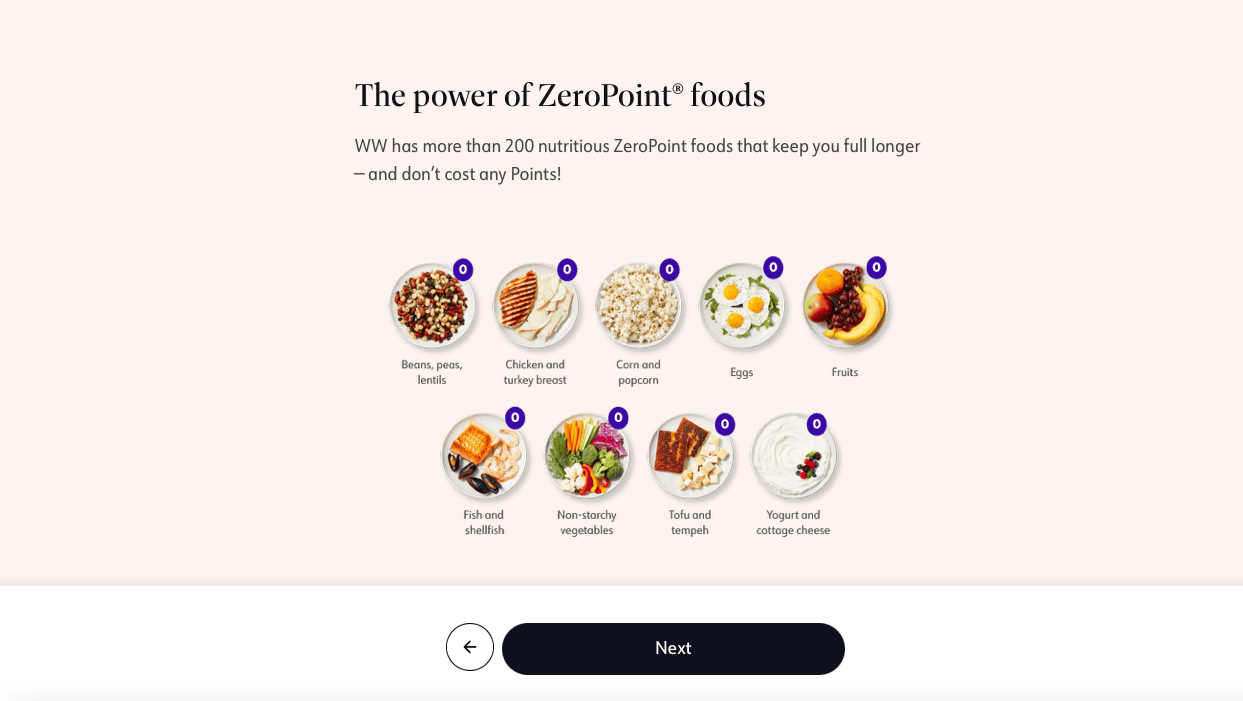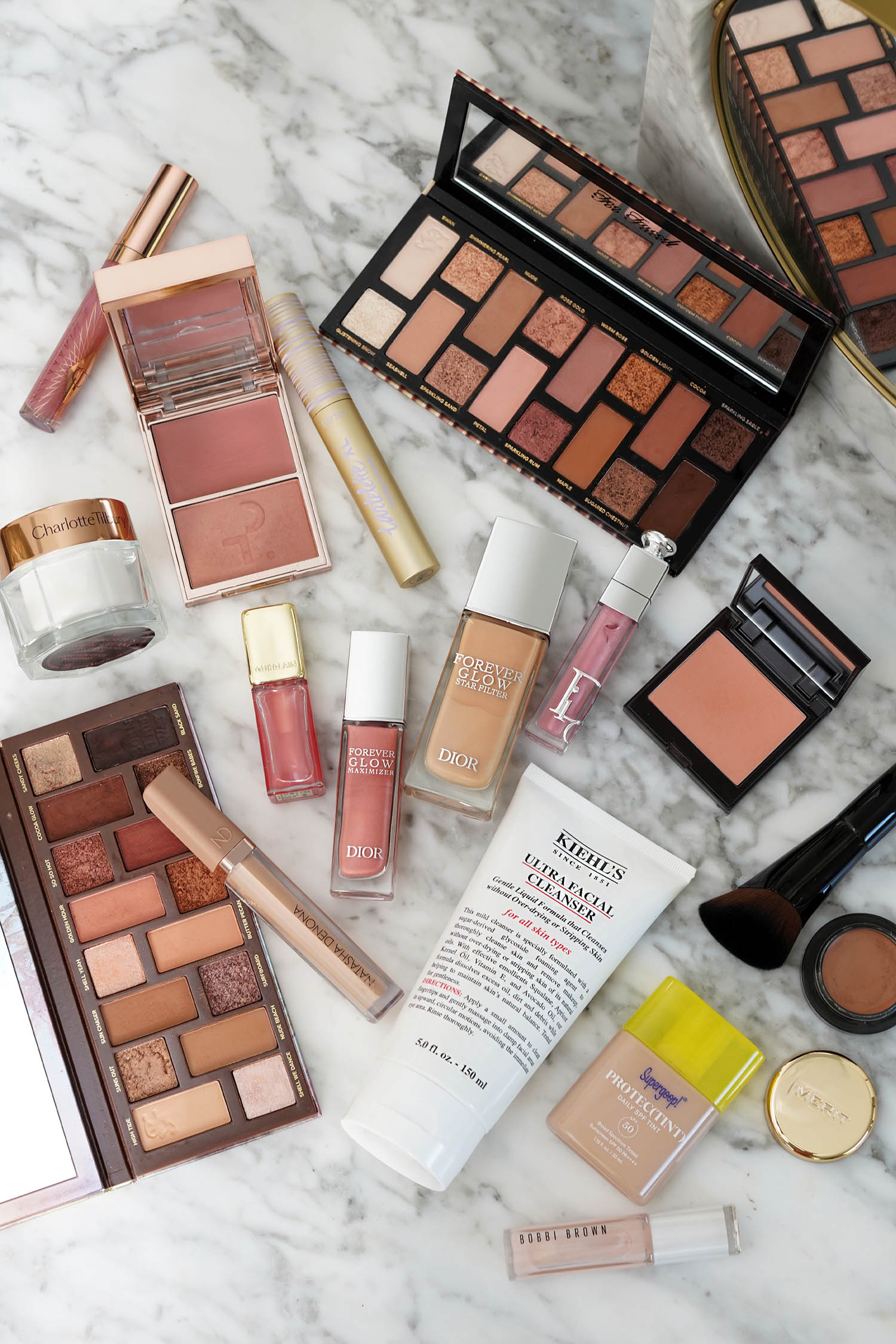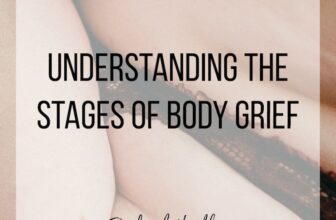
[ad_1]
This Weight Watchers review post is an opinion piece based on my expertise as a dietitian. The quotes that are bolded throughout the piece are the real-life experiences of former Weight Watchers dieters.
Weight Watchers is undeniably one of the most successful commercial diet programs ever. Founded in 1961 by Jean Nidetch, a housewife and mother, it has grown to become a diet behemoth with 4.6 million members worldwide.
Perhaps in an attempt to shuck off its bad diet juju among a large proportion of the population, Weight Watchers rebranded in 2018 as ‘WW.’ Suddenly, Weight Watchers wanted to jump on the wellness train, but most of us weren’t having it.
That’s because WW was, and is, still a diet, and we all know it. You can’t give people a calorie *ahem* points budget, have a primary outcome that involves weight loss, and then say that you’re not selling them a diet.
And who can forget Kurbo, WW’s attempt to suck kids into its orbit? The weight loss app, released in 2019, catered to kids as young as 8 years old, and was understandably met with outrage because ‘weight loss’ and ‘8 year old’ should never be used in the same sentence.
The Kurbo app isn’t available anymore, but in 2022, the FDA issued a settlement order to WW for loopholes in the app, including one that allowed kids to sign up without parental oversight. The FDA also found that WW had used Kurbo to illegally harvest sensitive health information from children.
Now, under CEO Sima Sistani, WW is offering GLP-1 agonists as an alternative to its typical diet program.
Follow the money, I suppose.
Read my Xyngular GLP-X review here.
WW meetings are now mostly online, and weekly weight-ins are still part of the program. If you do go to an in-person ‘workshop’ as they’re now called, the weigh-ins are private, instead of in front of your fellow WW dieters.
I’ve heard from countless people who were put on Weight Watchers as teens and adults, about how traumatizing these public weight-ins were for them.
Here’s a few:
The day the weigher was aghast that I had gained 0.5 pounds was my last visit. She literally put her hand to her mouth in shock and asked me what happened. I wanted to say “I f**king ate, that’s what happened”.
It was awful. I was a kid who didn’t understand why my body was “wrong” in a room full of 50 year old women. It taught me nothing about nutrition, especially because that was the age of “fat makes you fat”. Everything was off limits and all I learned was how to hide my eating, lie about portions, be embarrassed about weigh-ins, and eat far too much of all the foods I was denied as a child once I started to buy my own food. I’m 43 and I’m just now healing my relationship with food and my body.
Is there research behind the Weight Watchers diet?
There are a few studies here, here, and here, that appear to show WW’s efficacy in terms of weight lost and diabetes management. However, WW funded these studies, and the results are fairly unremarkable.
Remember that just because something has research behind it, doesn’t mean it’s good research or that the results were clinically relevant.
Weight Watchers Points
The Weight Watchers points system is the basis of all their diet plans. It was introduced in 1998. It then changed to Winning Points, then Pure Points, then Pro Points, then Points Plus, then Smart Points and then Freestyle. The differences between these are minimal: the WW Points system seems to change as often as the wind blows, or at least that’s the impression I’ve gotten.


The gist is that you get a certain number of points to ‘spend’ each day, plus an allotment of weekly points to ‘cover’ any ‘indulgences’ that might pop up. You can also ‘earn’ bonus points for exercise, which I think is completely ridiculous, since it makes exercise into something we do to ‘earn’ food or ‘make up’ for eating (both of which are disordered thinking), and it’s not how our bodies work…at all.
I took the WW quiz, which assigned me 26 points a day. The questions were mostly focused on weight loss, asking my current height, weight, goal weight, sex, and age. The only medical history question it asked was if I have diabetes.


Relevant factors such as activity level, history of an eating disorder or other serious diagnoses, weren’t mentioned. To their credit, I tried to enter a weight that was too low for my height, and got this message:


As a dietitian, my main issue with WW is the points system. I believe that it encourages disordered thinking and habits around food for many people.
Here’s my Weight Watchers Personal Points review.
It encourages ’banking’ of points (aka calories, who are we kidding here), and categorizing foods as ‘good’ and ‘bad.’ Yes, all foods can fit, but it’s human nature to not think that way when presented with an option (aka zero point foods) where they can eat more for less. I also see the program encouraging followers to ‘game’ the system.
This is something that was echoed in some of the comments I got from people:
I did lose 80 pounds but I gained it all back because it didnt help me to choose ‘better foods’ it helped me to find ways to still eat what I wanted. So other than portions nothing changed for me. I guess it gave me a false sense of having control?
While WW itself does not outwardly promote “artificial foods” you could tend to lean towards some of them because they were lower in points. I also didn’t think they promoted healthier options all the time: Skim milk and 0 fat yogurt were 0 points, but I had been taught that you needed the fat to blunt any insulin spikes and the fat would also increase your satiety. I found it very difficult to stay within the points and eat healthy and left after 3 months. I figure there was no sense in being smaller if I wasn’t also getting healthier.
Each food’s points are calculated based on its nutrients. Sure, vegetables and fruits have low points values, but there are extremely physically nourishing and satisfying foods that are higher in points. Avocado, nuts, oatmeal, and sweet potatoes are a few of them.
The current WW program has more than 200 zero-point foods, which sounds amazing until you realize that it actually isn’t, for reasons I’m going to explain.
WW tells dieters not to overeat zero point foods, but if you’ve been given a points budget to stay within, there’s a distinct allure to stuffing yourself with zero point foods in order to ‘afford’ the inevitable multi-point binge.
All of this turns eating into a math equation, which may lead to eating foods that you don’t want just to fit into your points budget, or not eating as much as you need because of the points. Conversely, you may eat just to satisfy your points budget if you have points left over (which probably never happens). This can mess up your internal hunger and fullness cues.
Here’s why I don’t recommend having a calorie goal.
It also promotes satiety OVER satisfaction. Volume eating, or eating large volumes of low-calorie foods to fill the stomach so you don’t eat other, higher-calorie foods, is a disordered behaviour.
If you go over your points budget or eat the ‘wrong’ foods, this can lead to guilt and shame, something that perpetuates the diet cycle.
Participants must track their point intake, which can be triggering for anyone who is predisposed to, has, or has had an eating disorder. This is potentially a large segment of the population, as the prevalence of eating disorders themselves (NOT including disordered eating), according to this 2019 study in JAMA, is 1 in 5 women and 1 in 7 men.
We also know that prevalence of eating disorders peaks again in women around middle age, according to this 2023 study and others. In 2018, a report by MRI Simmons found that 85% of WW dieters were women, and 43% of those women were over the age of 55.
WW may say they’re all about health, but what I see reflected in the numerous WW points groups on Facebook, is pretty much the opposite.
If you can’t eat food without swapping out ingredients for lower-calorie choices, and you can’t eat without counting or tracking, please know that this is not what a good relationship with food looks like. It removes all flexibility, joy, and peace from eating. Not good.
The program uses ‘coaches’ who lack in-depth, relevant nutrition training. Their only qualifications are that they’ve reached their goal weight with WW and maintained it for at least 6 months.
Obviously, this is not adequate training to advise people on their nutrition. Nutrition and the psychology behind food choices are complex. Unqualified people can potentially do harm when they involve themselves in other peoples’ relationships with food and eating.
As with most diets, many people lose weight initially with WW because they’re eating fewer calories than they were beforehand. This is just simple math. However, the mental exhaustion that results from counting points and overthinking everything you put into your mouth can cause many of those people to give up. I don’t blame them.
I’ve seen many people in my practice who have done Weight Watchers years ago, but still see food as ‘points.’ This is problematic, because it causes them to fear food and second-guess everything they eat. It absolutely takes away that connection between how they feel and what they choose to eat.
I still know how many points some things are decades later. The weekly weigh ins were so stressful and the straight up food obsession was so harmful.
The thing is, these people often go back to WW again and again, because in their mind, it ‘worked’ once for them, so they’re going for a second, fourth, or eighth kick at the can. It rarely has a happy ending, but that’s what diet programs like Weight Watchers want.
Repeat customers. Lifetime devotees. People becoming dependent on knowing the points of each morsel of food before they allow themselves to eat it. Blaming themselves for their ‘failure’ on a diet that’s made to fail anyhow.
Sound familiar? Many of you who are reading this will recall having these experiences with WW. I’m sorry.
I joined many times and never made goal weight. As a result of being on WW I continued to drink coffee and tea black, don’t put butter on vegetables and limit fat. Still I’m heavier than I should be.
I work out regularly, walk long distances and generally feel guilty about not having my weight down. This month I turn 68.
I will say that I’ve joined WW so many times that I literally lost count. I never reached the goal weight that THEY set for me and always felt like a failure every time I left because it was my fault for “being so weak”.
My biggest takeaway from WW was that all of my worth as a human being was tied to a number on a scale, and all foods had numbers as well, which by God Had To Be Kept Under The Limit.
There was not only a total disregard for nutrition but also for the joy and pleasure of food too.
I tried ww and did lose 30 lbs which has come back after I stopped. I will say it made people panic about a 0.3lb gain, get obsessed with which brand of hummus is 1 point vs 1.5, too focused on the minutia, not an overall healthy sustainable long term weight maintenance solution. Any program will work while you work it, but you shouldn’t need a program if you are actually learning the skills and habits for healthy living.
I also got comments from followers who said positive things about their time with WW.
Things like, it gave them structure and taught them about portion size. That they’ve lost weight and kept it off, for the most part. That they enjoy the community, and that overall, it was a positive experience.
Does Weight Watchers work? Well, every diet will ‘work’ for someone. And by ‘work,’ I mean losing weight and KEEPING IT OFF.
I got 173 comments, 6 messages, and 15 emails about WW. Out of those 194 pieces of correspondence, 9 were supportive of WW. 4 were so-so, and the rest were negative.
181 out of 194 were so-so or negative, or 93%. This isn’t a scientific outcome, but it’s interesting to see the split. I feel as though it’s consistent with what I’ve heard from people over the past 24 years I’ve been a dietitian.
No matter how WW puts it, it’s still a diet.
Oh hey, how about we just EAT?
People will never stop wanting to lose weight, and as a dietitian who supports intentional weight loss where appropriate, I totally understand. However, I think there are better ways to lose weight than to subject yourself to WW or another commercial diet program.
Weight Watchers, if you’re listening, here are my recommendations:
Get rid of the points in favor of a more intuitive eating-style program. People will be mad at first, but in the long-run, it’s a healthier way to see food and eating.
If you’re truly interested in peoples’ health and overall wellness, stop making weight loss the primary goal of your program.
Get some sort of maintenance support, because several people complained to me that you have none.
Monitor the WW groups on social for disordered behaviour, and FFS, ask relevant questions in your onboarding quiz.
Use qualified health professionals as coaches. You have the money. Just do it.
Who am I kidding…WW will never change their ways. We can hope, though.
SHAMELESS PLUG: if you’re struggling with your nutrition and relationship with food, I can help! I’m taking 1:1 clients now. I’m more expensive than WW, but you may be able to get coverage for my services if you have private insurance. Here’s the link for more information and to request a session.
[ad_2]











